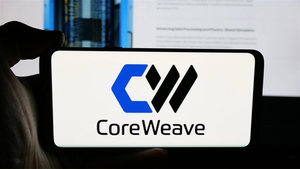Financial News
TARGET DEADLINE ALERT: Bragar Eagel & Squire, P.C. Reminds Investors that a Class Action Lawsuit Has Been Filed Against Target Corporation and Encourages Investors to Contact the Firm
Bragar Eagel & Squire, P.C., a nationally recognized stockholder rights law firm, reminds investors that a class action lawsuit has been filed against Target Corporation (“Target” or the “Company”) (NYSE: TGT) in the United States District Court for the District of Minnesota on behalf of all persons and entities who purchased or otherwise acquired Target securities between August 18, 2021, and May 17, 2022, both dates inclusive (the “Class Period”). Investors have until May 30, 2023 to apply to the Court to be appointed as lead plaintiff in the lawsuit.
Click here to participate in the action.
Prior to the Class Period, Target experienced unprecedented double-digit growth in 2020 as consumers increased spending with funds provided from stimulus checks and shifted their spending away from services in favor of goods. In its 2Q 2021 earnings call, Target attributed its success to its “durable, flexible” business strategy, which it stated allowed the Company to stay nimble and quickly respond to its customers’ rapidly shifting preferences. Target touted its “balanced multi-category assortment” as a “key driver of flexibility” and a unique advantage that allowed the Company to “serve our guests, even when their wants and needs are changing rapidly.” To ensure that its assortment stayed in balance in a volatile environment, Target reviewed the data that it gathered from its 100+ million-member loyalty program, Target Circle, as well as other sources, on a weekly basis to gain insights and inform its merchandising decisions. Because these preferences were often changing “week by week,” these insights were essential to allow Target to “optimize [its] assortment.”
However, despite Target’s runaway success in 2020, the Company’s revenue was constrained by Target’s inability to keep its shelves fully stocked. In the first half of 2021, though inventory had meaningfully improved compared to the prior year, Target was still experiencing some headwinds which prevented the Company from maintaining optimal inventory. On August 18, 2021, during a Company earnings call where Defendants discussed second quarter 2021 results, Target attributed its inventory struggles to two pandemic-related factors: (1) unexpectedly greater demand due to changing consumer behavior; and (2) vendor constraints resulting in less product for Target to replenish. To mitigate the risk that replenishment of in-demand goods could take longer than usual going into the second half of 2021, Target announced during that earnings call that it had been ordering larger upfront quantities in advance of season to ensure that shelves were stocked with products consumers wanted, when they wanted them.
At the same time Target announced its early purchasing strategy, Defendants stated during the August 18, 2021, earnings call that consumer shopping preferences continued to shift. For example, while demand for home and hardline products—two of Target’s core product categories—skyrocketed in 2020, the Company was now noticing a softening in demand for those products. Nevertheless, Target falsely assured investors that its “unique multi-category assortment” enabled the Company “to flex between patterns in consumer behavior changes,” and that its inventory “perfectly positioned [Target] to serve our guests’ evolving wants and needs.”
As recently as March 1, 2022, Defendants continued to boast about Target’s “balanced” assortment and how the Company was “leveraging guest insights to enhance our assortment” and adapt to the rapidly changing consumer trends.
However, contrary to Defendants’ statements touting the flexibility of Target’s purported “durable” business model and “balanced assortment,” Defendants were aware that the Target’s strategy of buying early had resulted in the Company over-purchasing goods that were no longer in demand. As early as August 2021, Target’s “multi-category” inventory became out-off-balance and overweight in home and hardline products — “bigger, bulkier products like furniture, TVs, and more” — due to waning demand. Target’s assortment problem only continued to grow throughout the Class Period as consumers began to “refocus[] their spending” away from home and hardline goods and into experiences.
By May 18, 2022, Defendants would admit when reporting on results for the first quarter of 2022 that contrary to their public statements, Target’s “durable, flexible strategy” was thwarted by its practice of ordering inventory before it was needed, resulting in overstocked, unsellable inventory taking up valuable store shelf space and leaving Target unable to quickly pivot to meet changing consumer preferences as represented. This resulted in Target’s inventory increasing by nearly $1.1 billion over the previous quarter and overweight in “bigger, bulkier” hardline and home products that the Company was now forced to markdown to “make room for fast-growing categories.” As a result, Target’s revenue and gross margin declined nearly 19% and 4.3%, respectively, for the quarter, and Defendants stated they expected the excess inventory to negatively affect earnings into the next quarter.
The price of Target’s common stock had been artificially inflated by Defendants’ misrepresentations about the Company’s “balanced multi-category assortment,” insight into consumer behavior, and ability to respond to shifting trends throughout the Class Period. Upon the news that Target’s sales growth was lower than expected and that Target was unable to sustain the more moderate growth the Company had anticipated just a few weeks earlier, the price of Target’s common stock plummeted as the artificial inflation was removed from the price.
On this news, Target’s stock price declined $53.67 per share, or nearly 25%, from a closing price of $215.28 per share on May 17, 2022, to a closing price of $161.61 per share on May 18, 2022.
If you purchased or otherwise acquired Target shares and suffered a loss, are a long-term stockholder, have information, would like to learn more about these claims, or have any questions concerning this announcement or your rights or interests with respect to these matters, please contact Brandon Walker or Marion Passmore by email at investigations@bespc.com, telephone at (212) 355-4648, or by filling out this contact form. There is no cost or obligation to you.
About Bragar Eagel & Squire, P.C.:
Bragar Eagel & Squire, P.C. is a nationally recognized law firm with offices in New York, California, and South Carolina. The firm represents individual and institutional investors in commercial, securities, derivative, and other complex litigation in state and federal courts across the country. For more information about the firm, please visit www.bespc.com. Attorney advertising. Prior results do not guarantee similar outcomes.
View source version on businesswire.com: https://www.businesswire.com/news/home/20230526005006/en/
Contacts
Bragar Eagel & Squire, P.C.
Brandon Walker, Esq.
Marion Passmore, Esq.
(212) 355-4648
investigations@bespc.com
www.bespc.com
More News
View More





Quotes delayed at least 20 minutes.
By accessing this page, you agree to the following
Privacy Policy and Terms Of Service.



